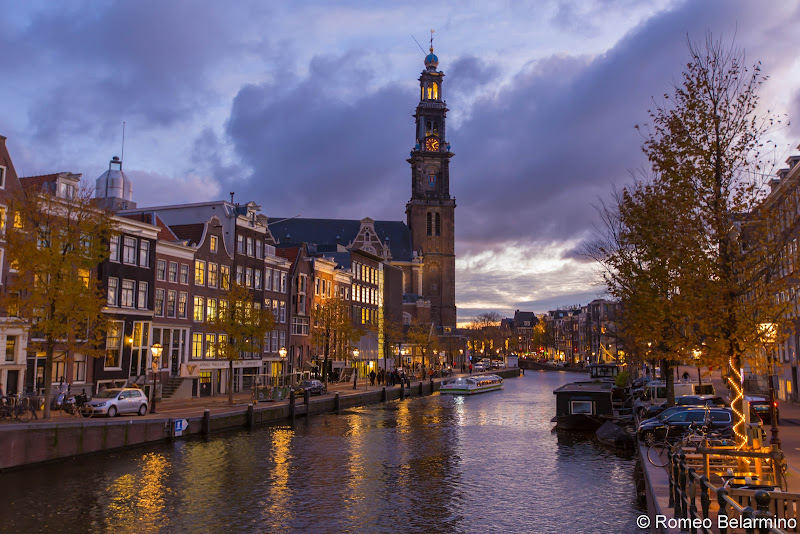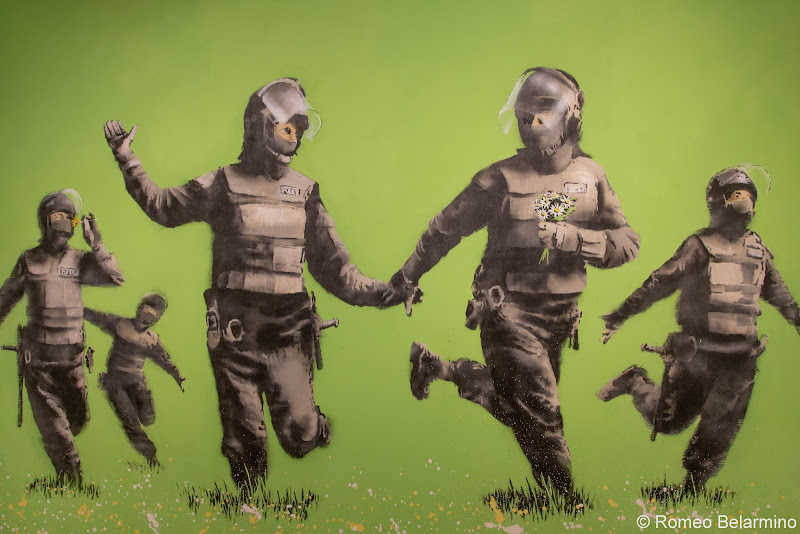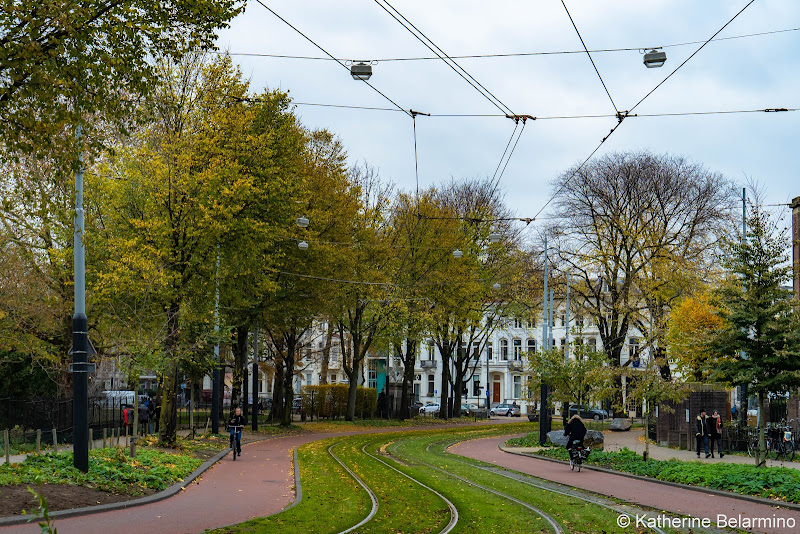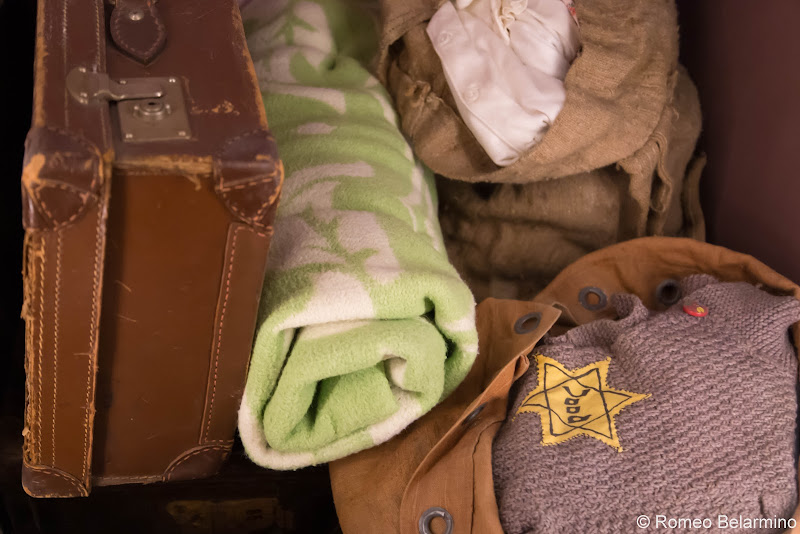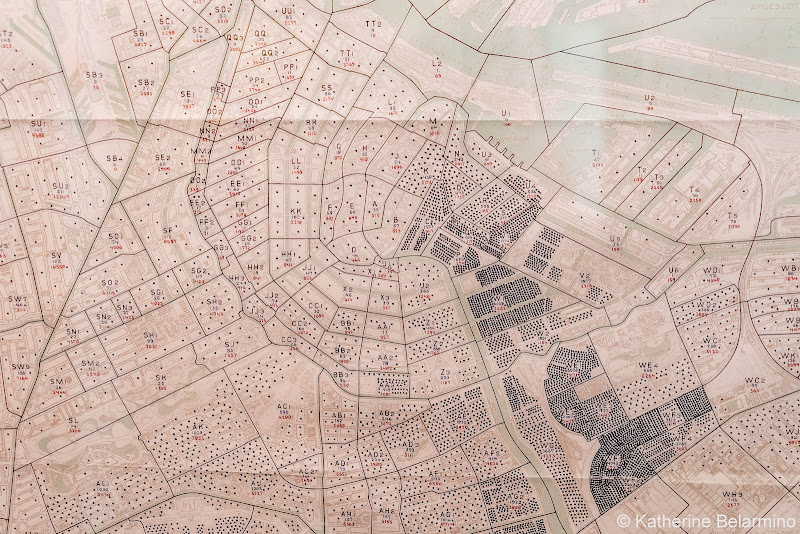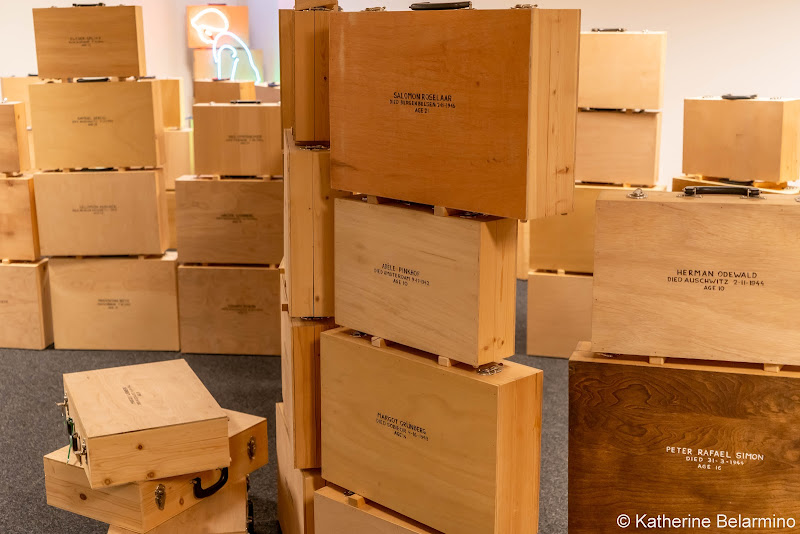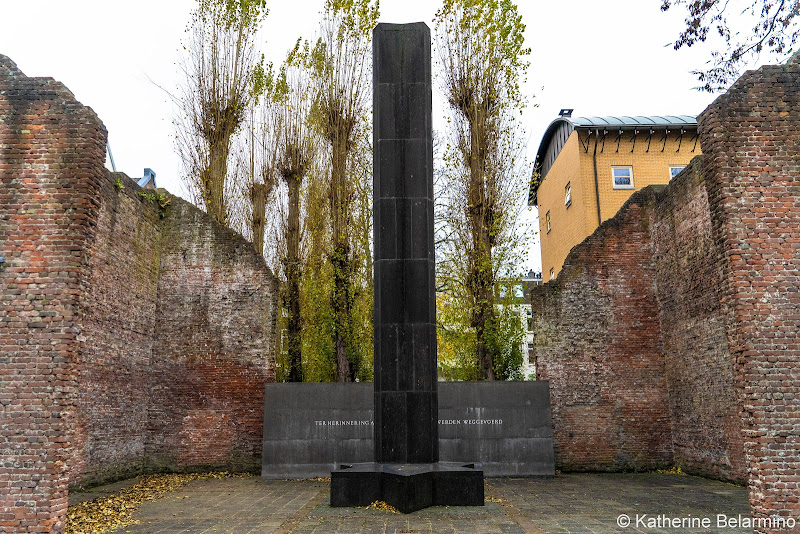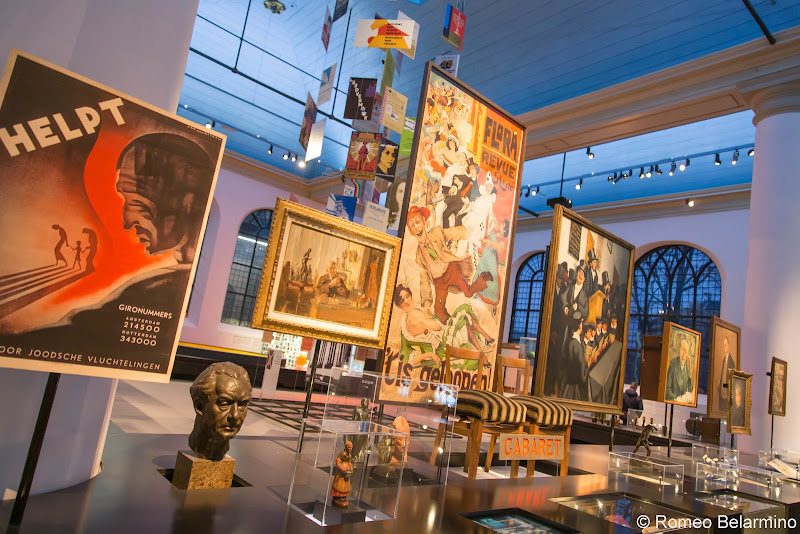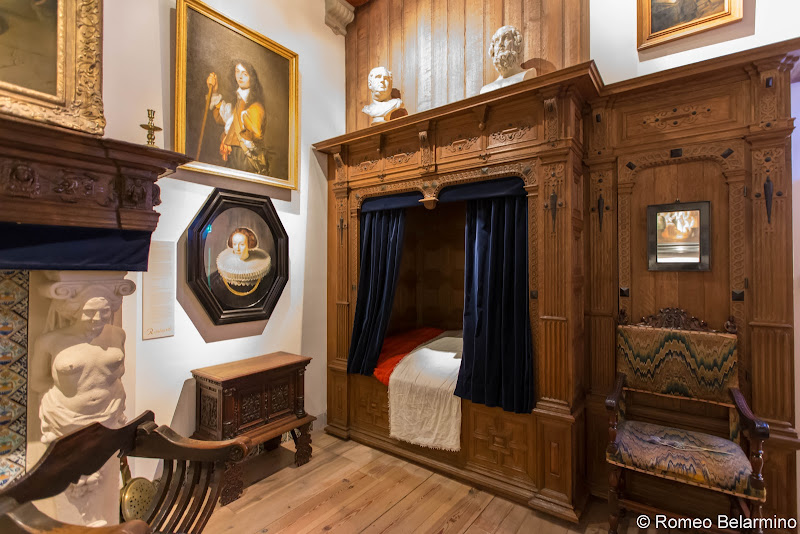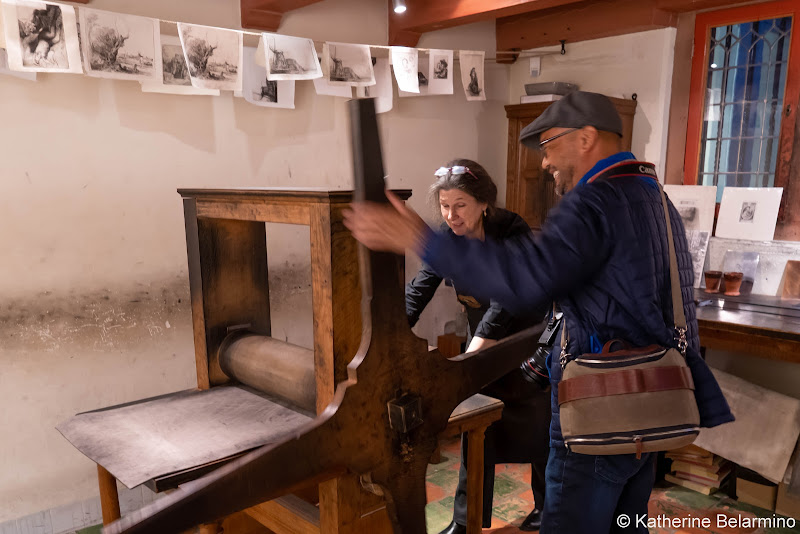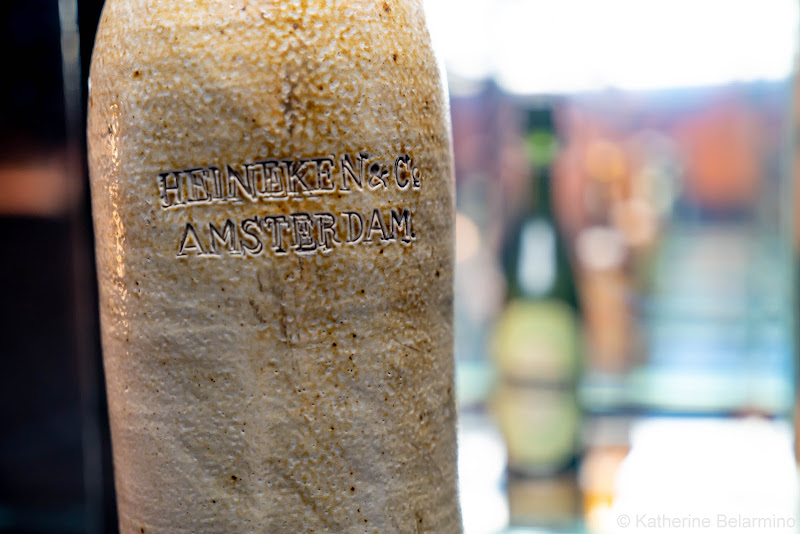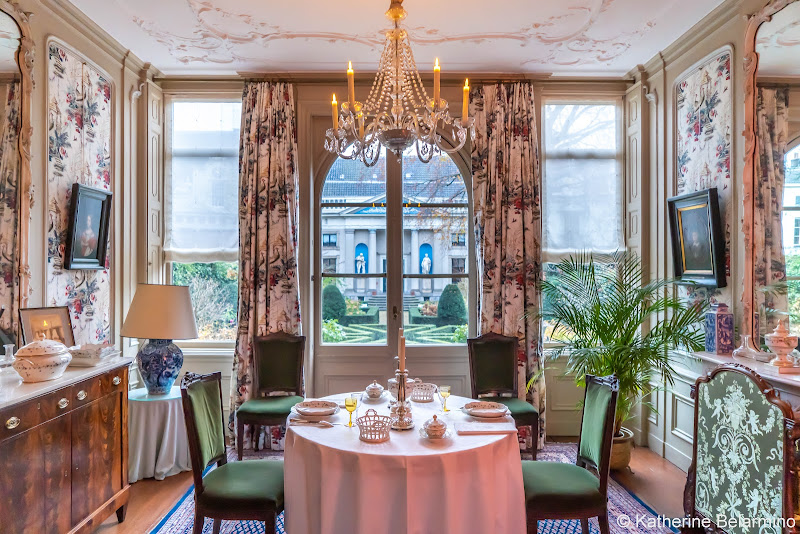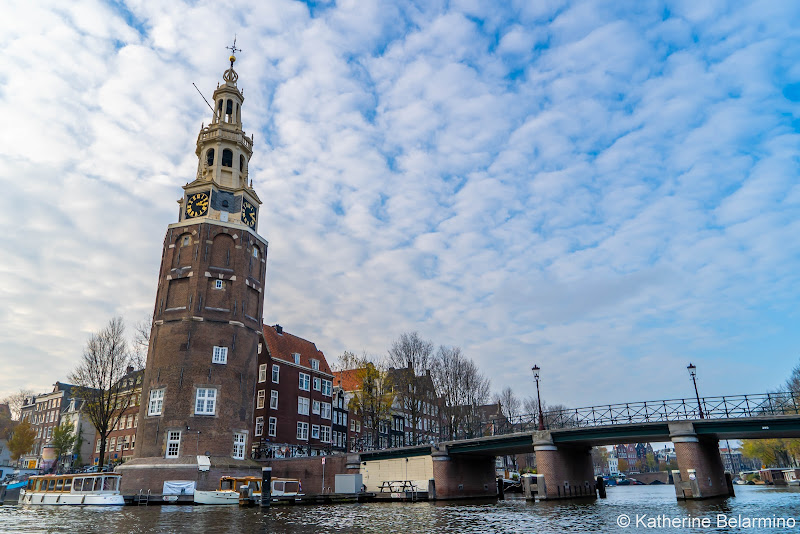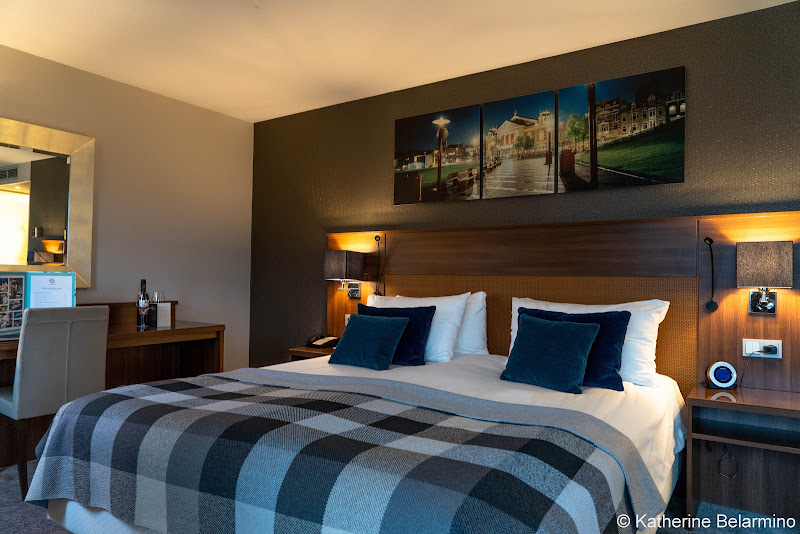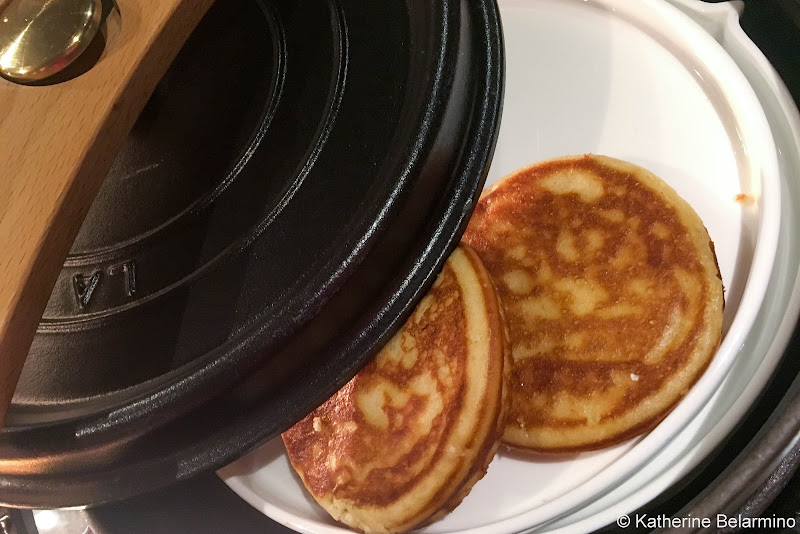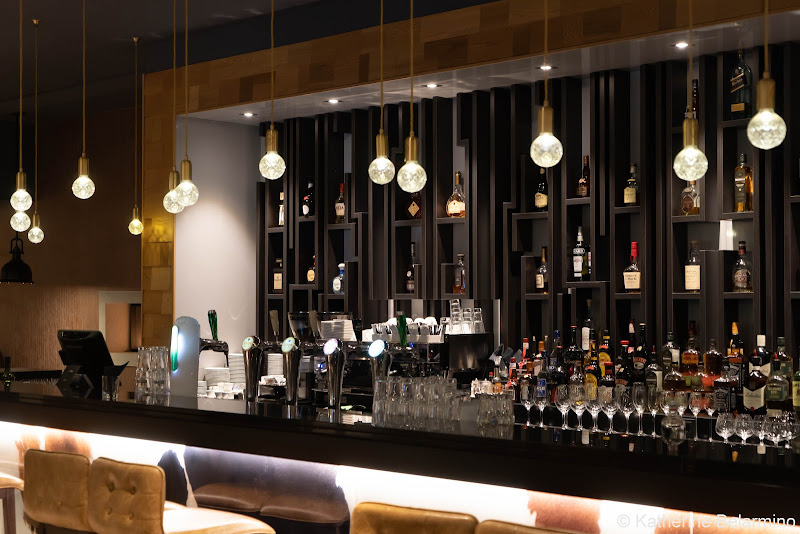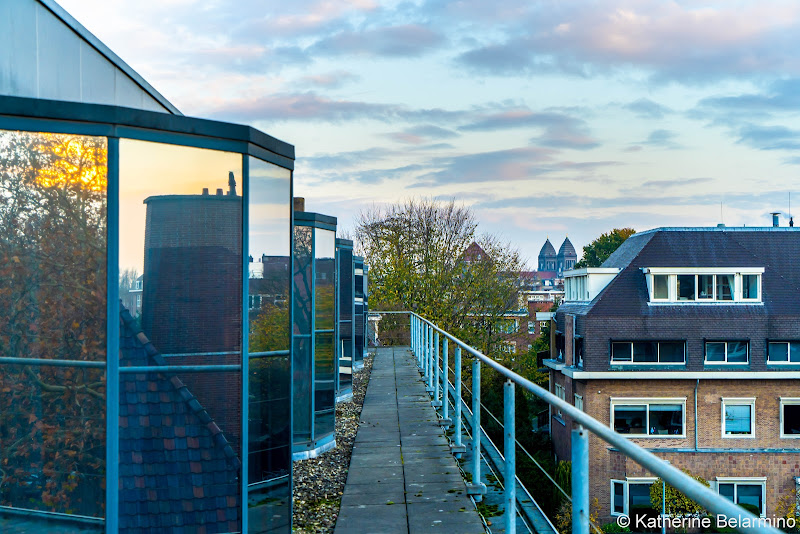Amsterdam is one of Europe’s most popular vacation spots. Based on feedback from 100,000 millennials, Amsterdam came in number two for most popular travel destinations on earth. That’s not a huge surprise considering Amsterdam is a picturesque city of canals, architecture, world-famous museums, and more bicycles than people. It’s also very affordable. All of this also means Amsterdam is quite crowded, especially in the city center. Fortunately, the many things to do in Amsterdam include a number of places to visit in Amsterdam’s unique neighborhoods just outside of the city center.
Oud-Zuid
Amsterdam’s Oud-Zuid neighborhood, just south of the city center, was our favorite neighborhood, which is a good thing since that’s where we stayed, at the Bilderberg Garden Hotel Amsterdam (more about the hotel later in the article).
The Oud-Zuid neighborhood is one of the prettiest and wealthiest neighborhoods in Amsterdam, with wide streets lined with unique shops and some of Amsterdam’s best museums.
Van Gogh Museum
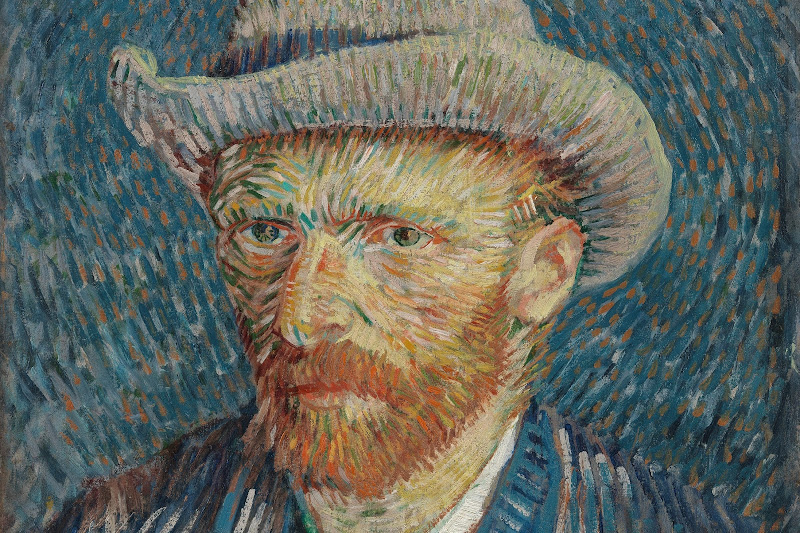 |
| Self-Portrait with Grey Felt Hat Vincent van Gogh 1887 Van Gogh Museum, Amsterdam (Vincent van Gogh Foundation) |
The Netherlands is famous for its artists. There are many important Dutch artists, including Van Gogh (pronounced more like vun-khokh by the Dutch). The Van Gogh Museum, located in the Oud-Zuid neighborhood, has the largest collection of Vincent van Gogh’s art in the world. Some of Van Gogh’s famous works that are in the museum include his self-portraits, The Potato Eaters, Sunflowers, Almond Blossom, Irises, and The Bedroom. Romeo used to not be such a fan of Van Gogh, but our Amsterdam vacation was quite an art education and he’s now fascinated by how Van Gogh could create self-portraits that were clearly of Van Gogh, and yet were created with minimal broad brush strokes.
Rijksmuseum
The Rijksmuseum has been open to the public in its present place for over 200 years. The museum features antique objects, prints, drawings, photos, and of course paintings by the Dutch masters including Rembrandt, Van Gogh, Vermeer, Van Dyck, and Jan Steen. One of the highlights of the museum is Rembrandt’s Night Watch Gallery, a larger-than-life portrait of the civic guard. The gallery in which it is displayed was specially designed for the painting.
Entrance to the Rijksmuseum is free with the I amsterdam city card. Download the Rijksmuseum mobile app before leaving home and bring your earphones so you can use the app to tour the highlights and learn more about any piece in the museum.
Moco Museum
Moco Museum is a boutique museum amongst the giants. Moco Museum is housed in an English country house style building designed by Eduard Cuypers, the cousin of the architect who designed the Rijksmuseum. Moco Museum houses modern and contemporary art, mostly Banksy. Other artists featured are Icy & Sot, the Banksy of Iran, and Roy Lichtenstein. Outside of the museum is the Moco Garden, a fanciful garden of sculptures like a huge gummy bear.
Vondelpark
Vondelpark is to Amsterdam what Central Park is to New York City and is a relaxing place to visit during an Amsterdam vacation. Vondelpark is perfect for strolling, jogging, biking, skating, dog-walking, and whatever else strikes your fancy. Vondelpark first opened to the public in 1865. Because the park is constructed on muddy land, its ground level is constantly lowering, so the park has to go through a thorough renovation every 30 years.
De Plantage
Amsterdam’s De Plantage neighborhood is just east of the city center. This area of Amsterdam has more green spaces and is home to the ARTIS Royal Zoo and Amsterdam’s botanical gardens. Rembrandt called the De Plantage neighborhood home. De Plantage is also the place to learn about Jewish wartime Amsterdam.
Dutch Resistance Museum
The Netherlands surrendered to Nazi Germany in 1940 after Rotterdam was obliterated by bombing. The country remained under German occupation until May 1945. During those five years the Dutch resistance, mostly without violence, fought against the Nazis and hid 300,000 people.
The Dutch Resistance Museum walks visitors through the three choices the Dutch had: adjust, collaborate, or resist. It may seem like such an easy decision now in hindsight, but the Nazis had a subtle approach of slowly undermining official resistance in The Netherlands, so at first, the occupation didn’t seem so bad. There was even an economic boom at the start. In the beginning, many Dutch felt the best way was to adjust, and some even joined in the Nazi cause. Quotes from Dutch people include, “I was impressed that Hitler had turned a land with millions of unemployed into a prosperous country” and “What attracted me was the energy: the singing and marching, and that sense of belonging.” But as the war intensified and conditions deteriorated, more Dutch people started to resist in various ways including public protests, helping people go into hiding, smuggling ration coupons and destroying the Amsterdam Registry Office.
National Holocaust Museum
The National Holocaust Museum is located in a building that was used by the Dutch resistance to smuggle 600 children out of captivity, using the outside tram stop as cover. The museum is a work in progress, hosting temporary exhibitions that tell the story of the Holocaust with stories from survivors and surviving objects about men, women, and children who did not make it to the other side of the Holocaust. In the basement is an installation by Willem Volkersz, In Memoriam, which commemorates student of the 1st Montessori School in Amsterdam who lost their lives during the Nazi occupation.
National Holocaust Memorial
The National Holocaust Memorial, across from the museum, used to be a theater. In 1941 it was turned into the Jewish Theatre by the Germans and was later used as a site of deportation of Jews to concentration and extermination camps. After the war, the theater fell into disrepair. In 1962 a monument was erected in memory of the Jewish victims. A Wall of Remembrance has been engraved with the surnames of the 104,000 murdered Jews from the Netherlands.
Portuguese Synagogue
The Portuguese Synagogue was built in 1675 and has its original interior. The synagogue is still lit by hundreds of candles. In addition to the synagogue, visitors can enter various rooms in the complex, such as the treasure chamber. The oldest functioning Jewish library in the world can also be seen here.
Jewish Historical Museum
The Jewish Historical Museum is housed within four synagogue buildings. Visitors learn about Dutch Jewish life past and present at the museum through paintings, films, and other items. The video displays are an interesting and interactive way to learn about Jewish holidays and traditions.
Rembrandt House Museum
In addition to the Jewish Cultural Quarter, the De Plantage neighborhood has the Rembrandt House Museum. This is where the famous Dutch artist Rembrandt lived and worked. It was interesting to go through the rooms of the house and learn about Rembrandt’s life, how he became a famous portrait painter, how he filled his house with works of art by other artists, and how his extravagant lifestyle and the change in his clients’ tastes led to his bankruptcy.
What we found the most interesting in the Rembrandt House Museum were the demonstrations about creating etchings and paint. We learned how Rembrandt’s apprentices created colored pigments by grinding rocks, mixing the powder with oil, and storing it in pig bladders. They had to learn to create the same color and the same consistency from natural ingredients. Some rocks and minerals were expensive and came from faraway places. Once a color was created, it might be applied to three or four paintings at once that were awaiting that specific color.
We also learned how Rembrandt used leftover paint from his palettes to build up the sleeves of one of his most famous paintings, The Jewish Bride, to create texture before painting the more expensive paint over it, and how he layered different shades of red to create depth in the bride’s skirt.
Oud-West
Foodhallen
Foodhallen is one of the star attractions of the Oud-West neighborhood. Foodhallen is a food market in a former train depot. There’s live music every Tuesday night and DJs Friday and Saturday nights. Food stands sell a variety of foods including tapas, tacos, dim sum, pitas, seafood, hamburgers, frozen yogurt, and more. Bars sell wine, beer, and cocktails.
De Pijp
The De Pijp neighborhood is below the city center just east of the Oud-Zuid neighborhood. De Pijp was a working-class neighborhood, attracting people from many countries to work at the Heineken brewery. It is still a multicultural neighborhood with lots of flavors and variety.
Heineken Experience
The Heineken Experience is an interactive tour of the original Heineken brewery. Gerard Adriaan Heineken’s mother purchased the brewery for him and in 1873 the first Heineken beer was brewed after Dr. Elion, a student of Louis Pasteur, developed the Heineken yeast that is still used in today’s Heineken beers. Visitors learn the history of Heineken, take a peek into the stables of the Heineken horses, follow the path of beer from brew to bottle, and enjoy two Heineken beers at the Best ‘Dam Bar.
Albert Cuypmarkt
The Albert Cuypmarkt runs along Albert Cuypstraat. The street market, which has been operating since 1905, has 260 stalls and operates six days a week. The market sells international foods and ingredients, traditional foods, clothing, leather goods, jewelry, souvenirs, and more.
City Center
Amsterdam’s city center is where you’ll find the most canals and tall, narrow canal houses with gable hooks for moving items in and out. It’s also where you’ll see the most bikes, outside of the bicycle parking lot of the Central Station. In fact, around 6,000 bicycles are pulled out of Amsterdam’s canals every year. It’s also where many of the city’s smaller themed museums are located like the houseboat museum and Dutch costume museum.
Anne Frank House
The top thing to do in Amsterdam is a visit to the Anne Frank House. If you haven’t read Anne Frank: The Diary of a Young Girl, it’s worth reading before visiting the house and the secret annex, though the museum does a good job of telling the story briefly throughout the house. The self-guided tour visits the rooms of Anne’s father’s company, passes through the doorway hidden by a bookcase, and ends in the rooms of the secret annex where eight people, including the teenaged Anne Frank, hid for two years before they were discovered, arrested, and sent to concentration camps.
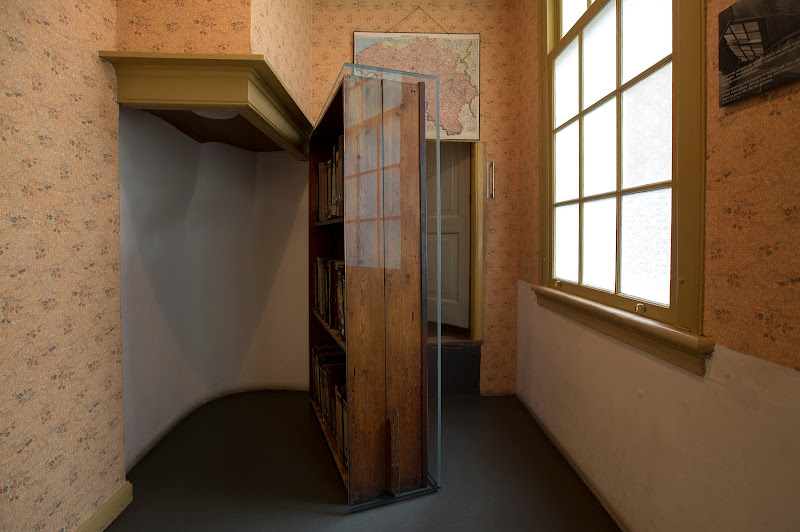 |
| Anne Frank House Photographer Cris Toala Olivares |
The I amsterdam city card does not cover the Anne Frank House. The house can only be visited with tickets purchased online for a specific date and time. Photos are not allowed anywhere inside the Anne Frank House.
Museum Van Loon
Because Amsterdam’s city center canal houses are so tall and skinny, it’s pretty hard to envision what the inside of one of them looks like. Luckily there are a few canal houses in Amsterdam that are open to the public. One of these is the Museum Van Loon. Willem van Loon was a co-founder of the East India Company VOC in 1602. The canal house, originally built in 1672, was purchased by the Van Loon family in 1884. The Van Loon family still lives in the upper floors of the house.
When Amsterdam’s canal district was designed, canal houses were meant to have large decorative private gardens. These gardens are completely hidden from the street as they are situated between the house in the front and the coach house in the back.
The Nine Streets
Royal Palace Amsterdam
The Royal Palace Amsterdam is the largest building from the Golden Age, originally built as Amsterdam’s town hall in the 17th century. The palace is open to visitors whenever there isn’t an official function happening.
Red Light District
One of Amsterdam’s most famous attractions is the red light district where sex workers pose in red lighted windows for passerbys to see. There are over 80 brothels in Amsterdam’s city center with hundreds of windows. Photos of the women in the window are strictly prohibited.
Amsterdam’s City Center Restaurants
There are plenty of restaurants, sandwich shops, coffee shops, and “coffee” shops to choose from in Amsterdam. We visited two restaurants in Amsterdam’s city center with great food that have stood the test of time. One is Restaurant De Struisvogel, a basement restaurant along the Keizersgracht canal. Restaurant De Struisvogel is an intimate restaurant, with 34 seats, that serves French-style food made with organic meat.
The other restaurant was Tashi Deleg, a Tibetan and Indonesian restaurant in Amsterdam’s city center which serves rijsttafel. It is imperative to have a rijsttafel meal when in Amsterdam. Rijsttafel is a Dutch word that means rice table. It is a meal the Dutch colonies in Indonesia created in order to sample many dishes in one meal. While rijsttafel is typically Indonesian food, it is a Dutch concept. At Tashi Deleg you can order a rijsttafel of either Indonesian food or Tibetan food.
Canal Cruise
A canal cruise through Amsterdam visits multiple neighborhoods in a short amount of time. The I amsterdam city card covers one free hour-long canal cruise with a choice of multiple companies with stops around the city. We chose the Hop On – Hop Off Boat canal cruise, which has a pickup point in front of the Rijksmuseum. The boat had a recorded tour in multiple languages, but we were lucky to have a captain that preferred to give us his own voiceover of the city which was far more interesting and entertaining.
He also went a little off course, causing our one-hour tour to really be more like two hours, but it was totally worth it. For instance, we passed by some pretty crooked houses. Some of Amsterdam’s houses look like they’re leaning forward. That’s on purpose so it’s easier to pull items up with the gable hooks without the items hitting the front of the building. But some of the crooked houses are actually leaning this way and that because the wood pylons stuck in the marshy land that Amsterdam is built on are decaying.
Bilderberg Garden Hotel Amsterdam
Bilderberg is a Netherlands hotel group, with two hotels in Amsterdam. We stayed at the Bilderberg Garden Hotel Amsterdam in the affluent Oud-Zuid neighborhood, away from the congested city center but close enough to reach everything easily by foot or tram.
What we liked about the Bilderberg Garden Hotel Amsterdam was the unique mix of friendly, personable service at a hotel that is good both for business travelers and leisure travelers, all with an intimate atmosphere.
We also liked the Bilderberg Breakfast which helped us start every day with energy, especially important since it was winter. Breakfast is served in the hotel’s restaurant, De Kersentuin Restaurant.
The hotel also has a bar, De Kersentuin Bar, which serves apple pie in addition to cocktails.
We stayed in an executive room on the top floor, a private floor reachable with the executive lift. Rooms on this floor have curved floor to ceiling windows, providing a somewhat panoramic view while maintaining privacy. Guests with executive rooms are also able to walk outside on a patio that wraps around the building.
Getting Around Amsterdam
Amsterdam is a very walkable city, but it’s also easy to get around by public transportation. Trams and buses crisscross the city. The I amsterdam city card provides free entrance to most museums and tours and discounts to some museums, restaurants and shops. It also includes free access to all GVB bus, tram, and metro lines within Amsterdam. If you’re brave enough, it can also be used to get discounts on bicycle rentals.
The Amsterdam & Region Travel Ticket is valid for one, two or three calendar days. The Amsterdam & Region Travel Ticket can be used on all metro, tram, and bus lines operated by GVB, Connexxion, AllGo, and EBS, as well as NS trains in the Amsterdam area, including to and from the airport. With the Amsterdam & Region Travel Ticket, visitors can explore the areas surrounding Amsterdam, such as Haarlem, Old Holland, and Amsterdam’s castles and gardens. There are some helpful apps to plan routes and find schedules including the GVB app and NS app.
Thank you to the Bilderberg Garden Hotel Amsterdam and Amsterdam Marketing for hosting our trip to Amsterdam and making this post possible. As always, all opinions are our own. This article may contain affiliate links.
